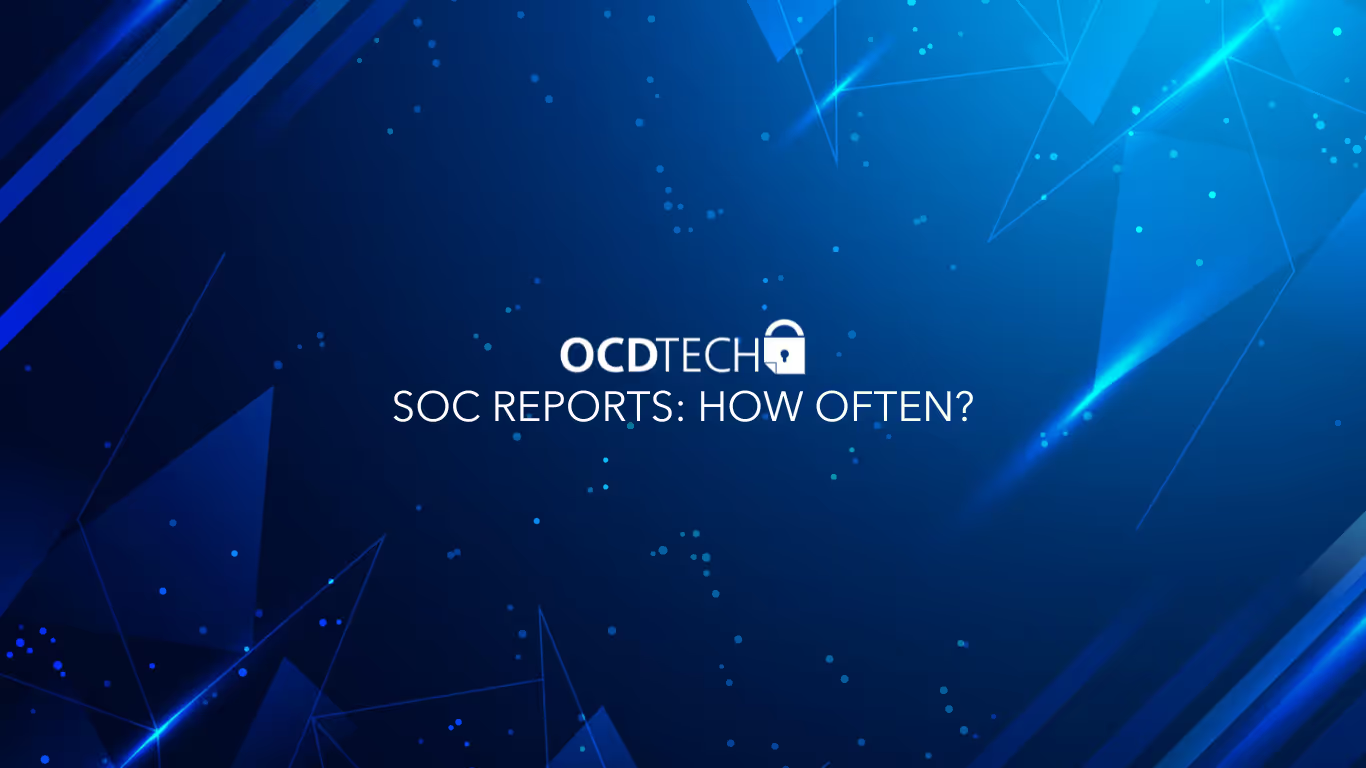By
OCD Tech
May 23, 2024
•
2
min read

While annual SOC 2® Type 2 reports are common practice, the specific frequency may vary depending on the factors mentioned above. It's crucial to maintain open communication with stakeholders and align your reporting schedule with their needs and expectations.
Remember, SOC reports are valuable tools for demonstrating your commitment to security and compliance. By proactively managing your reporting, you can build trust with your clients and partners while ensuring the ongoing protection of sensitive data. OCD Tech is a provider of SOC 2®, SOC 3®, and SOC for Cybersecurity® services. Contact our team of experts.

Audit. Security. Assurance.
IT Audit | Cybersecurity | IT Assurance | IT Security Consultants – OCD Tech is a technology consulting firm serving the IT security and consulting needs of businesses in Boston (MA), Braintree (MA) and across New England. We primarily serve Fortune 500 companies including auto dealers, financial institutions, higher education, government contractors, and not-for-profit organizations with SOC 2 reporting, CMMC readiness, IT Security Audits, Penetration Testing and Vulnerability Assessments. We also provide dark web monitoring, DFARS compliance, and IT general controls review.
Contact Info
.svg)
OCD Tech
.svg)
25 BHOP, Suite 407, Braintree MA, 02184
.svg)
844-623-8324
.svg)
https://ocd-tech.com
Follow Us
Videos
Check Out the Latest Videos From OCD Tech!
Services
SOC Reporting Services
– SOC 2 ® Readiness Assessment
– SOC 2 ®
– SOC 3 ®
– SOC for Cybersecurity ®
IT Advisory Services
– IT Vulnerability Assessment
– Penetration Testing
– Privileged Access Management
– Social Engineering
– WISP
– General IT Controls Review
IT Government Compliance Services
– CMMC
– DFARS Compliance
– FTC Safeguards vCISO